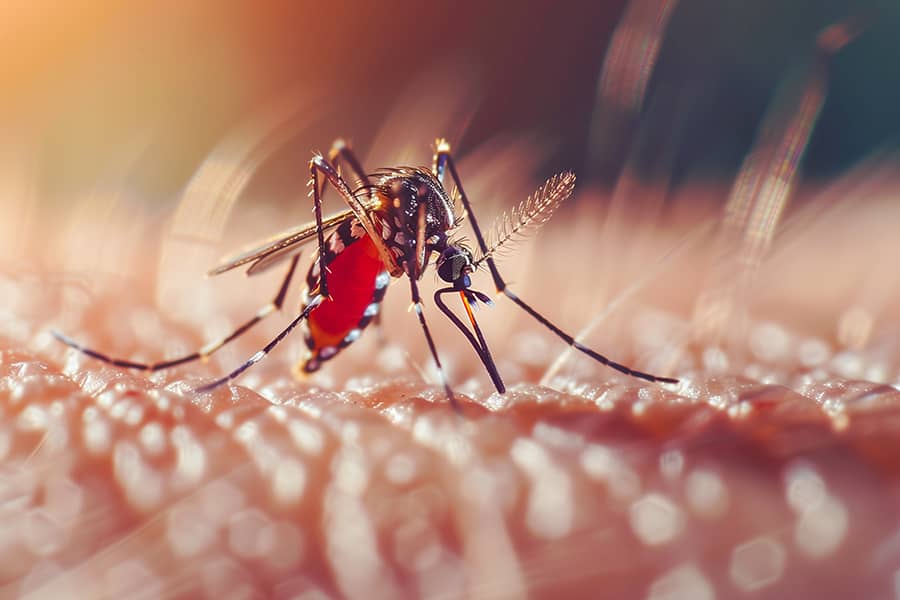Increasing Protein Intake Could Help Slow Alzheimer’s Progression

Understanding Alzheimer’s Disease and Nutrition
Nutrition plays a pivotal role in brain health, particularly when it comes to neurodegenerative diseases like Alzheimer’s. Emerging research suggests that diets rich in specific nutrients could not only reduce the risk of cognitive decline but may also help slow the progression of Alzheimer’s disease. One key area gaining attention is protein intake; certain amino acids found in proteins are fundamental for neurotransmitter production, which is critical for maintaining cognitive function and memory. By ensuring an adequate intake of high-quality protein sources, individuals may offer their brains a much-needed arsenal against the underlying processes driving Alzheimer’s.
Moreover, it’s essential to consider how holistic dietary patterns can complement increased protein consumption. Diets such as the Mediterranean or DASH have been linked to improved brain health due to their focus on whole foods rich in antioxidants and omega-3 fatty acids. These nutrients support brain structure and function while combating inflammation—another factor implicated in Alzheimer’s progression. By combining these approaches with heightened protein intake, we could forge a comprehensive nutritional strategy that not only promotes immediate energy but also nurtures long-term brain resilience against debilitating disorders like Alzheimer’s disease.
The Role of Protein in Brain Health
Protein is crucial for brain health since it aids in the creation and upkeep of neurotransmitters, which are vital for communication among brain cells. These chemical messengers affect various aspects, from mood stability to cognitive abilities. Neurotransmitters such as serotonin and dopamine depend on amino acids obtained from protein-rich foods. By maintaining sufficient protein consumption, individuals may enhance not only their emotional health but also improve memory retention and analytical skills over time. Studies indicate that specific proteins can directly impact neuroplasticity—the brain’s capacity to adjust and reorganize itself in response to new experiences or obstacles. This is especially significant for older adults or those vulnerable to cognitive decline, as strong neuroplasticity can alleviate symptoms related to conditions like Alzheimer’s disease.
Recommended Protein Sources for Brain Health
When considering protein sources that can enhance brain health, it’s essential to emphasize not just the quantity but the quality of protein consumed. Fish, specifically fatty varieties like salmon and mackerel, are packed with omega-3 fatty acids, pivotal in building neuronal membranes and promoting cognitive function. Incorporating legumes such as lentils and chickpeas into your diet can also be beneficial; they’re not only rich in protein but offer an array of vitamins and minerals critical for neurological integrity. Plus, plant-based proteins come with a fiber boost that supports gut health—a dynamic player in cognitive well-being due to the gut-brain connection.
Furthermore, incorporating nuts and seeds provides both protein and healthy fats while delivering antioxidants like vitamin E that combat oxidative stress in the brain. Walnuts stand out among these due to their particularly high levels of DHA, a type of omega-3 linked directly to improved cognitive performance. For those leaning toward dairy or alternatives, Greek yogurt is an excellent source of protein as well as probiotics that further benefit mental clarity by enhancing gut microbiota balance. Consistently including diverse sources of proteins will not only add variety to meals but also create a holistic approach to protecting your vital cognitive functions against degeneration over time.
Balancing Protein with Other Nutrients
While protein is essential for cognitive health, achieving a balanced integration with other nutrients can enhance its advantages. Fats, especially omega-3 fatty acids present in fish and flaxseeds, provide anti-inflammatory benefits that support brain function in conjunction with proteins. Adding nutritious carbohydrates from whole grains and vibrant fruits guarantees a prolonged release of energy and vital vitamins that work together with amino acids to maximize neurotransmitter synthesis.
Additionally, micronutrients such as B vitamins, vitamin D, and antioxidants should not be ignored. They are crucial for energy metabolism and brain well-being. For example, B vitamins assist in the creation of neurotransmitters while antioxidants fight oxidative stress—both significant factors when looking to improve mental sharpness in Alzheimer’s patients. By intentionally incorporating these nutrient-rich foods into your meals—consider quinoa salads featuring grilled salmon or vegetable stir-fries abundant in beans—you cultivate dietary variety that nurtures the body holistically rather than concentrating solely on protein consumption.
Practical Tips for Increasing Daily Protein
Consider incorporating protein-rich snacks into your daily routine. Instead of reaching for traditional options like chips or cookies, choose edamame, Greek yogurt, or a handful of nuts. These snacks not only appease hunger but also pack a powerful protein punch that can keep you fueled throughout the day while supporting cognitive health. Additionally, blending a scoop of protein powder into your morning smoothie can seamlessly boost your intake without altering the taste.
Another effective strategy is to diversify your protein sources. While red meat and poultry are common choices, exploring plant-based proteins—such as lentils, chickpeas, or quinoa—can provide both variety and additional nutritional benefits. Not only are these sources often lower in saturated fat and cholesterol, but they also come with fibers that promote gut health. Elevating the mundane act of meal prep by experimenting with different cuisines can inspire more creativity; try making a black bean burger or chickpea salad for lunch that makes every bite count toward your overall protein goal while tantalizing your taste buds!
Personalizing Your Diet for Alzheimer’s Prevention
Customizing your diet for Alzheimer’s prevention begins with recognizing that there isn’t a one-size-fits-all dietary method. Adopting a personalized nutritional plan can lead to substantial improvements, as individual genetics, lifestyle choices, and preferences significantly contribute to brain health. For example, some individuals may gain from higher omega-3 fatty acids found in fatty fish such as salmon or in walnuts, while others may thrive better on plant-based proteins from legumes or quinoa.
Moreover, meal timing and snacking patterns can impact cognitive performance—try to include regular servings of protein-rich foods throughout the day to keep blood sugar levels stable and enhance brain energy. Visit local markets for seasonal produce to add variety to your meals; this not only boosts nutrient consumption but also introduces fresh antioxidants essential for safeguarding neural pathways. Working with a nutritionist can further fine-tune this strategy by pinpointing specific foods that cater to your distinct biological profile, ensuring you nourish both body and mind effectively on the path toward preventing Alzheimer’s.
Potential Risks of High Protein Diets
While increasing protein intake has been linked to various health benefits, it’s crucial to recognize the potential risks associated with a high-protein diet. One concern is the possible strain on kidney function. For individuals already facing renal issues, an excessive protein load can exacerbate their condition, leading to long-term damage if not monitored carefully. This underlines the importance of personalized nutrition; what works for one individual may be detrimental to another.
Moreover, high-protein diets often result in the exclusion or significant reduction of other food groups, particularly fruits and whole grains. This dietary imbalance may lead to deficiencies in essential vitamins and minerals that are vital for overall brain health. Critical nutrients such as fiber—a key player in maintaining gut health—are often sacrificed for higher protein sources, which could inadvertently impact cognitive functions over time. Thus, while concentrating on protein can be enticing when exploring ways to combat Alzheimer’s, a holistic approach that prioritizes variety could provide a more sustainable pathway toward cognitive wellness.
Conclusion: The Importance of Nutritional Choices
In a world where dietary trends come and go, the significance of nutritional choices remains a cornerstone of overall health, especially in the context of neurodegenerative diseases like Alzheimer’s. While many focus solely on macronutrients or calorie counts, it’s essential to recognize that what we feed our bodies can deeply influence brain health. Opting for nutrient-dense foods rich in protein can not only sustain physical vitality but also support cognitive function, potentially slowing the progression of Alzheimer’s.
Moreover, making informed dietary decisions is an act of empowerment—one that allows individuals to take charge of their well-being in a proactive manner. Understanding how specific nutrients interact with brain chemistry opens up avenues for tailored dietary strategies; consider incorporating lean meats, fish rich in omega-3 fatty acids, and plant-based proteins into meals as part of enriching one’s diet. Ultimately, by embracing whole foods over processed options and prioritizing protein-rich ingredients, we cultivate not just better health outcomes but enhance our quality of life as well—Nourishment becomes both a shield against decline and a pathway to resilience.
Recent Posts
-
Books That Will Spark Your Passion for Reading
September 22, 2024



